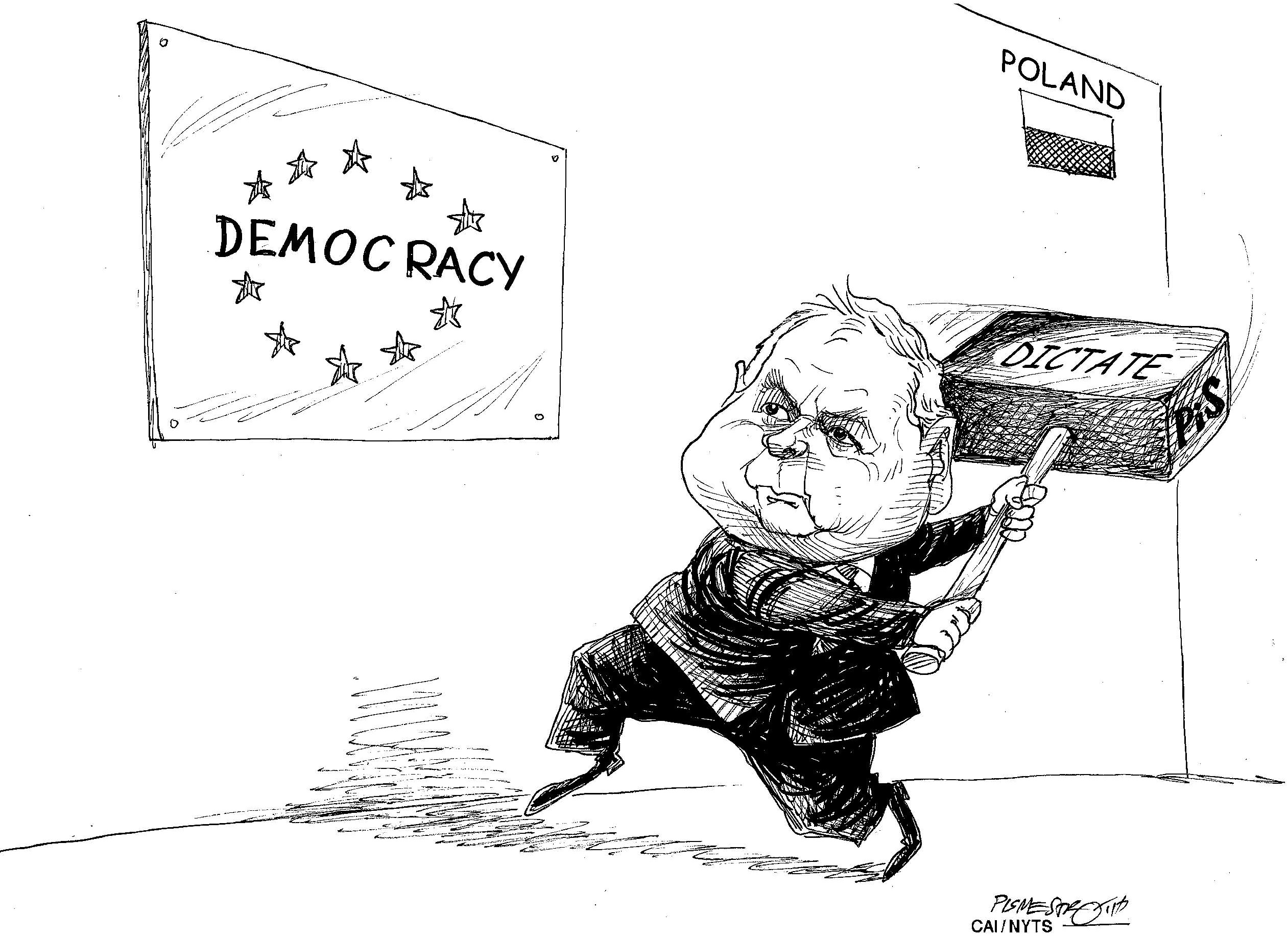Poland has now emerged as the latest European battleground in a contest between two models of democracy — liberal and illiberal. The overwhelming election victory in October of Jaroslaw Kaczynski's far-right Law and Justice Party (PiS) has led to something more akin to regime change than to a routine turnover of democratically elected governments. Prime Minister Beata Szydlo's new administration has purged the civil service (including public radio and television), packed the Constitutional Court with sympathizers, and weakened the Court's capacity to strike down legislation.
In response, the European Commission has launched an official inquiry into potential violations of the EU's rule-of-law standards. Moreover, Standard & Poor's has, for the first time, downgraded Poland's foreign currency rating — from A- to BBB+ — and warned of perhaps more cuts to come as it accuses the government of weakening "the independence and effectiveness of key institutions." Growing doubts about the commitment of Poland's new rulers to democracy has deepened the slump in Poland's stock market and contributed to a depreciation of the Polish zloty.
Poland is the largest European Union country to embrace illiberalism; but it is not the first. Hungarian Prime Minister Viktor Orban's government has been at odds with the EU for several years over his open politicization of Hungarian institutions, while Robert Fico's government in neighboring Slovakia has pursued a similar brand of raw "majoritarianism."

















With your current subscription plan you can comment on stories. However, before writing your first comment, please create a display name in the Profile section of your subscriber account page.